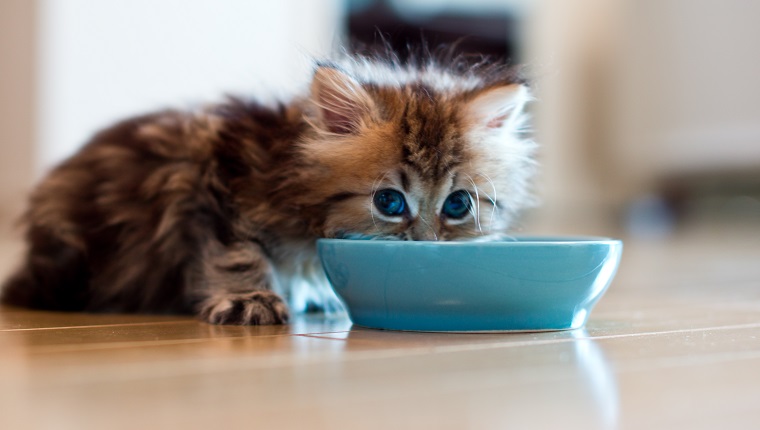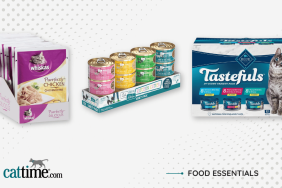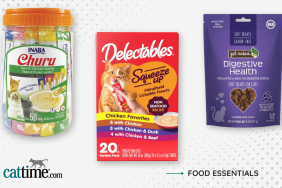Just as children’s dietary needs differ from those of healthy adults, your new kitten’s optimum diet is different from that of a mature cat.
The best thing you can do is talk to your veterinarian about your kitten’s needs. That way, you can give them the best start possible.
Here are a few things you should discuss with your vet when it comes to your kitten’s diet.
What Kind Of Diet Does Your Kitten Need?
Kittens require a diet that’s higher in protein than that of an adult cat, and the largest portion of the protein should be derived from an animal source rather than a plant-based protein.
Kittens also require larger amounts of calcium and phosphorus than grown cats.
While it’s possible for a kitten to survive on a diet formulated for adult cats, they are more likely to thrive on a diet formulated specifically for growth. These foods contain the increased protein, calcium, and phosphorus your kitten needs.
Dry, Canned, Semi-Moist, Homemade, Raw: What’s Best?
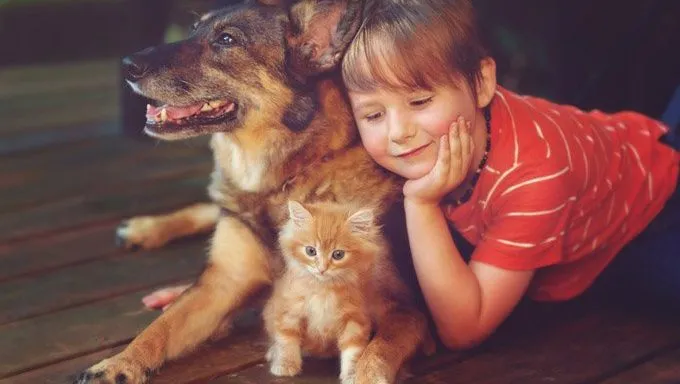
There’s a dizzying array of options for pet parents to choose from when it comes to food. And kitten food is no exception.
The most important consideration is making sure that your kitten’s diet is complete and balanced. For commercial diets, check the label to be certain that the food has been tested in actual feeding trials instead of by nutritional analysis.
There’s a great deal of discussion about carbohydrates and grains in cat and kitten food. While kittens and adult cats can metabolize carbohydrates, there are plenty of choices that are grain-free if you prefer to feed your kitten in that manner.
If feeding a homemade diet, make sure you’re working with your veterinarian or a nutrition expert to be certain that the diet is complete and balanced. Do not simply throw together kitchen scraps to feed your kitten, and do not feed an exclusively meat diet.
Feeding a raw diet is controversial. If you elect to do so, realize that there may be an increased risk of intestinal infections that could be passed to you and your family. However, many people feel that raw diets are more “natural” than other diets.
There’s not necessarily a right answer, so talk to your vet to make an informed decision.
How Much & How Often Should You Feed Your Kitten?
This will depend on the type of food and on your individual kitten. Dry foods can usually be left down for your kitten to graze on throughout the day, provided that they aren’t prone to overeating.
However, canned, semi-moist, and other types of diets can spoil if left out too long. In this case, feeding three times daily is often ideal for most kittens.
Kittens should be fed to maintain a lean body condition. If your kitten is gaining weight too quickly and is in danger of becoming overweight, you will need to restrict their food consumption by measuring their food daily.
This is especially true after your kitten has been neutered or spayed.
Don’t Forget To Provide Fresh Water
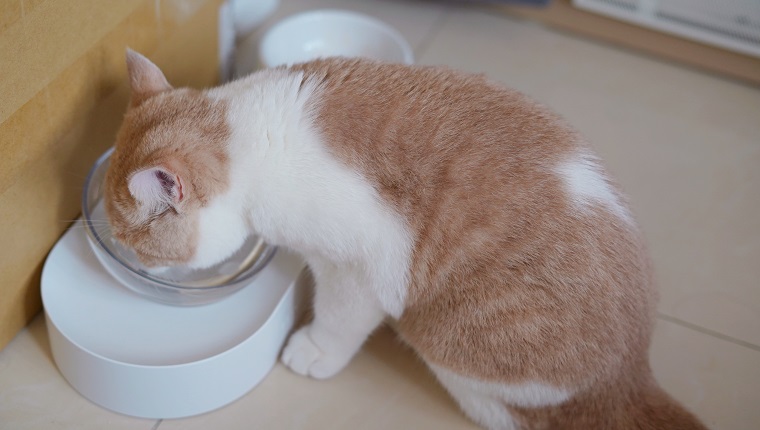
It’s easy to forget that water is an essential nutrient also and just as important as protein or any other nutrient. Make sure your kitten has access to clean, fresh water at all times.
Some cats can be picky about the water they drink, or they may not drink enough and could become dehydrated. If you’re having trouble getting your cat to drink water, you may want to try a cat water fountain. Sometimes the running, fresh water will encourage cats to drink.
Do you have a kitten at home? How do you make sure they’re getting the right diet? Let us know in the comments below!
